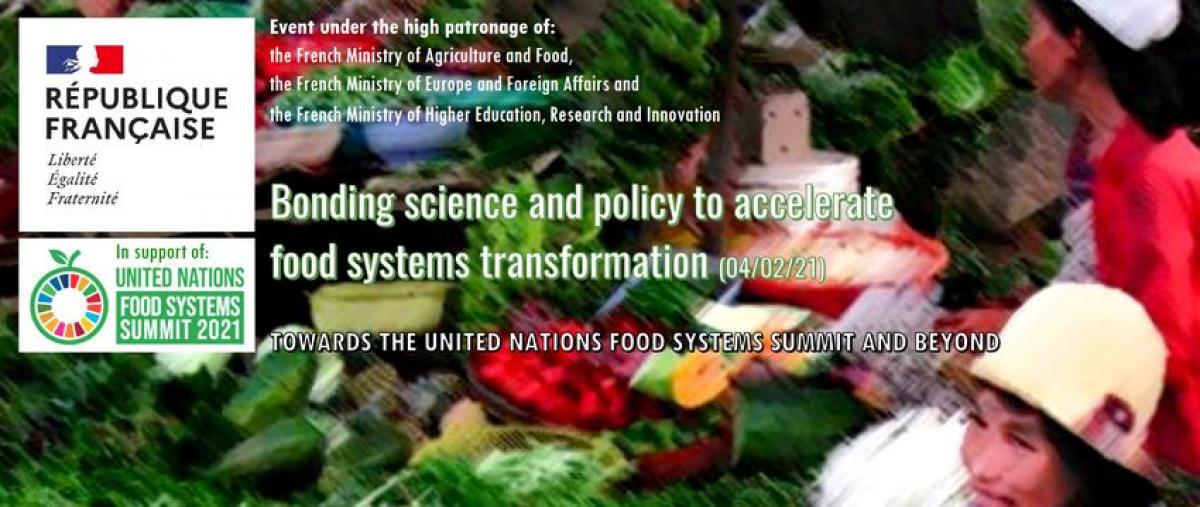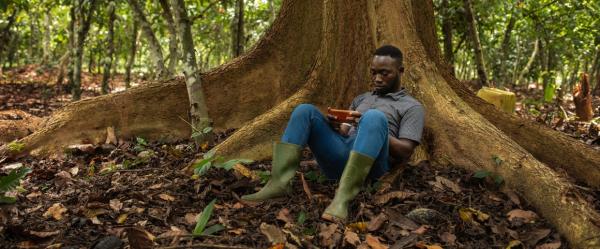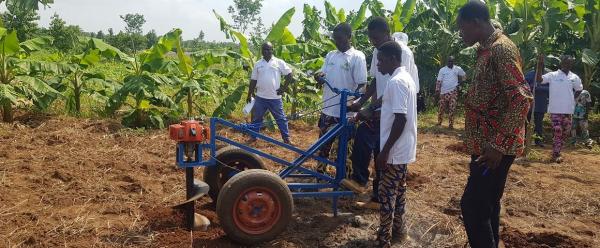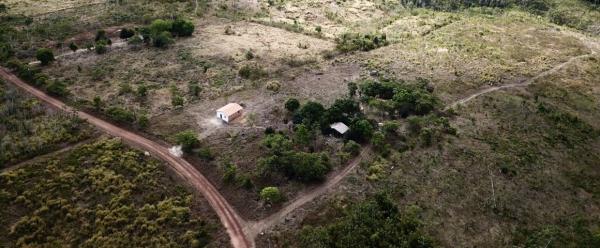Call to action 25 November 2025
- Home
- CIRAD news
- News
- Science-policy interactions for food systems transformation
Science-policy interactions: huge potential for food systems transformation

Making kai paen, a Laotian speciality made of algae gathered from the Mekong © C. Dangleant, CIRAD
Food systems are at the heart of huge challenges. By 2050, the planet will have almost 10 billion people. Feeding everyone, without exacerbating poverty, accelerating deforestation or increasing our emissions will be impossible unless we immediately implement major changes in our food systems.
Science-policy interfaces, a powerful driver of change in our food systems
The evolution of food systems depends on the decisions and practices of a broad range of actors, who all have their own interests, visions of the future and strategies, linked by unbalanced power relations. Science-policy interfaces play a decisive role in this complex interplay. Strengthening these interfaces and making them more active, ambitious and productive could be a powerful driver of food systems transformation. Perspective changes are essential to build the dialogue between scientists, policy-makers and civil society. Moving beyond knowledge supply and alarm-bell ringing, scientists need to ensure the future of their research and its accessibility, while policy-makers need to make more effective use of scientific knowledge in decision-making.
“Business as UNusual” to reinvent food systems
There are many different kinds of science-policy interfaces. To ensure the coherence of food systems transformation, these interfaces need to be strengthened, but also connected and streamlined. The creation of new interfaces is not necessarily the best way forward.
“Business as UNusual”, as proposed here, is structured around four pillars:
- generating actionable knowledge, data and tools to develop compromises, to address obstacles to change, especially conflicts of interest, power asymmetry and path dependency, and to manage risk and uncertainty;
- articulating local models, knowledge and innovations to design, implement and assess pathways to food systems transformation: this requires specific arrangements, dialogues and methods, including scientific ones;
- connecting and integrating expertise mechanisms to address multi-sectoral and multi-level issues is essential in order to meet the connected challenges of environment, climate and food;
- strengthening scientific cooperation through ambitious alliances and programmes focusing on the main challenges.
Without science-policy interfaces, there can be no transformation
There is an urgent need to build new, more sustainable and more equitable systems that improve health for all people. The scientific communities are ready to participate. Policy-makers are eager to make better use of science when making decisions and designing public action. The COVID-19 pandemic has shown that tailorable science-policy interfaces can be beneficial. The priority now is the implementation of mechanisms that will improve linkages between science and policy by strengthening deliberative dialogue. There is reason to be optimistic: examples of such interfaces exist.
Now is the time to learn from and make effective use of known examples, while connecting them to amplify their impact and innovating to build the future we want. Science-policy interfaces will play a decisive role if they are able to articulate different views, to go beyond polarised debates and sectoral fragmentation, to anticipate the future and to align local and global processes and actions.
At the request of the UN Food Systems Summit Scientific Group, these recommendations have also contributed to a brief on science-policy interfaces: How could science-policy interfaces boost food system transformation? This document was produced by CIRAD, the International Food Policy Research Institute (IFPRI) and the think tank Convene.
This event brought together 600 participants from 60 countries on 4 February 2021. With numerous presentations and interactions between policy-makers, civil society, the private sector and the scientific community, it focused on science-policy interfaces as drivers of the changes required in food systems throughout the world.
> Organisation committee for the event: P. Caron, E. Hainzelin, A. Harding, R. Echeverria, M. Broin, M. Enriquez, C. Anderson.
> More information on the event




























